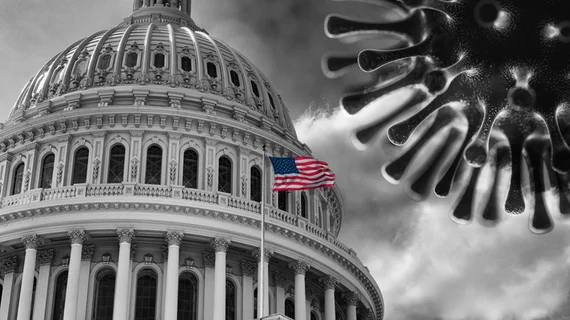American College of Radiology sees opportunity for legislative wins in 2022, despite ‘partisan gridlock’
The American College of Radiology sees opportunity for legislative wins in Washington this year, despite ongoing “partisan gridlock” and the upcoming midterm elections.
ACR highlighted clinical labor wage updates—being phased-in over the next four years—as one area to address through advocacy in early 2022. For the first time in nearly 20 years, the feds are boosting payments to benefit primary care and others who use clinical labor. But the move is expected to gash pay for others who do not, including interventional radiologists and radiation oncologists.
Meanwhile, Medicare is also temporarily holding off on sequester cuts for the first six months of 2022 before they go into full effect in the fall. ACR believes such reductions present another shot at convincing Congress to intervene, and the college is confident it can work with lawmakers, regardless of which party is in power.
“The American College of Radiology is fortunate to enjoy good relationships on both sides of the aisle, and there are opportunities for ACR members to play a leading role in building the college’s policy agenda and engaging with congressional members in their districts,” the Reston, Virginia-based organization said in a Jan. 28 news update. “This will be vitally important through the 2022 election cycle.”
Democrats currently hold slim advantages in the House (221-212) and Senate (50-50, including two independents who caucus with the party), but it’s possible both chambers will flip. All representatives are up for reelection this year, with 41 declining to run for reelection. Another 34 spots are opening in the upper chamber, and six senators are not seeking an additional term.
ACR hopes to build on momentum from the last few years, with lobbying efforts resulting in physicians retaining more than $1 billion through 2023. The college said it will continue to work alongside other doc groups hoping to “reinforce the message that Congress must enact permanent Medicare reimbursement reforms.”
The Medical Group Management Association echoed some similar concerns in its own letter to congressional leaders on Jan. 28. MGMA also wants lawmakers to address, among other things, sequester cuts that will start in April at 1% and increase to the full 2% by October.
“Since group practices are still struggling to meet the demands associated with the pandemic, MGMA urges Congress to extend the moratorium on the 2% Medicare sequester until the end of the COVID-19 public health emergency, or Dec. 31, 2022, whichever is later,” wrote Anders Gilberg, senior VP of government affairs for the association, which represents more than 15,000 physician groups across radiology and other specialties.

